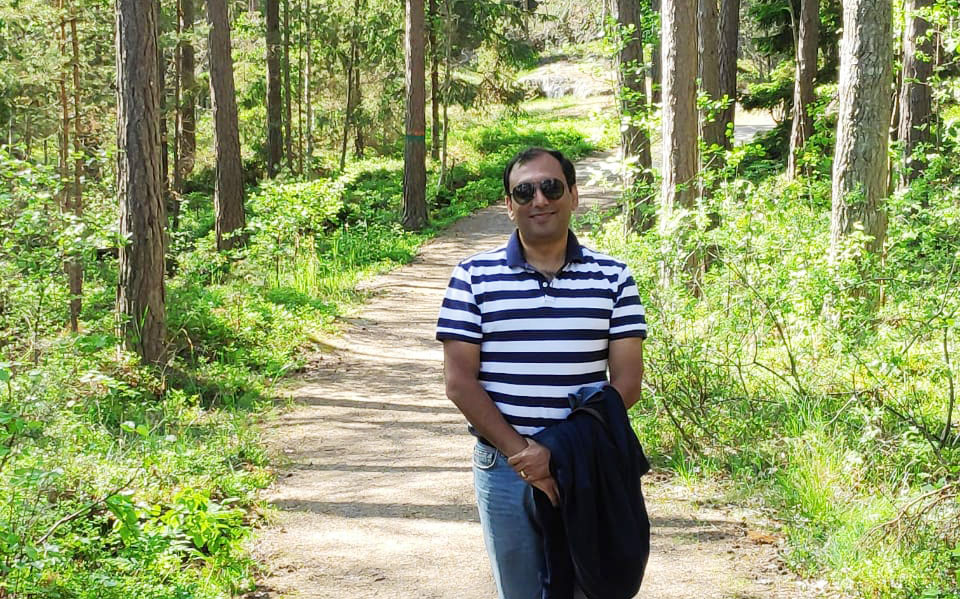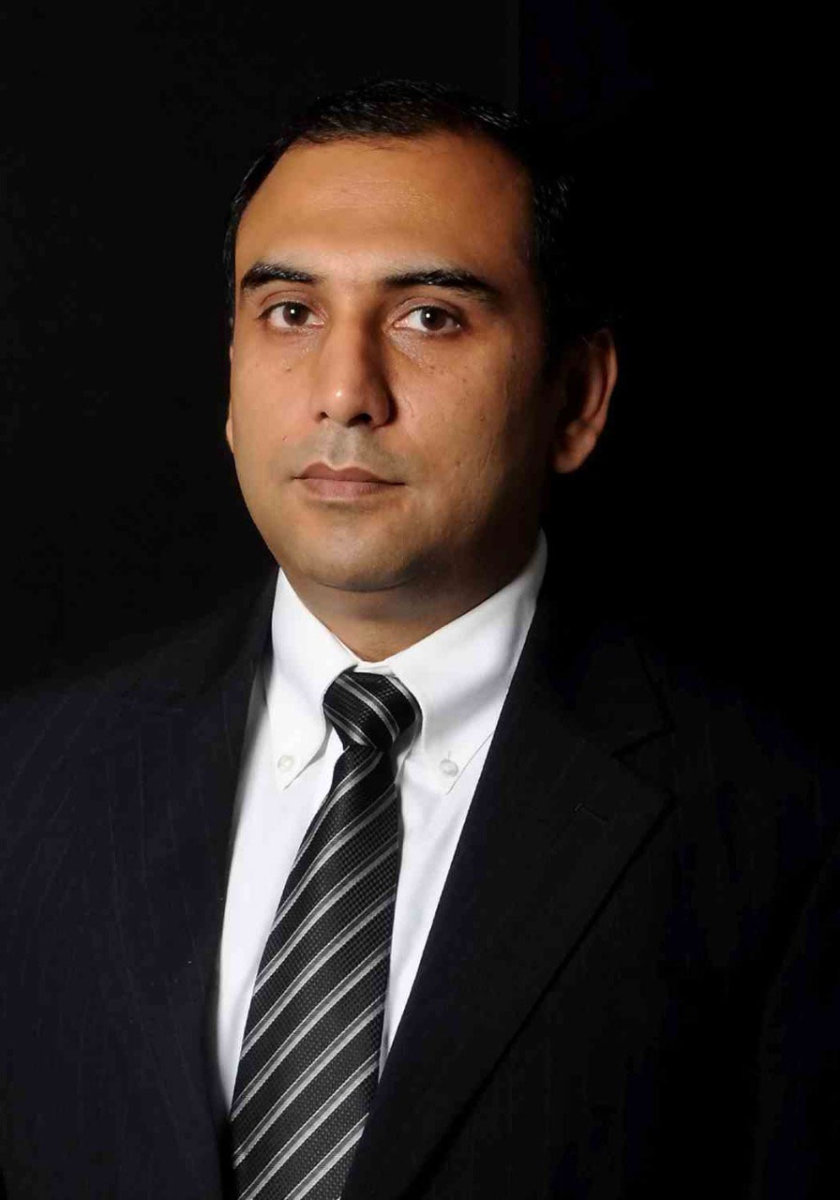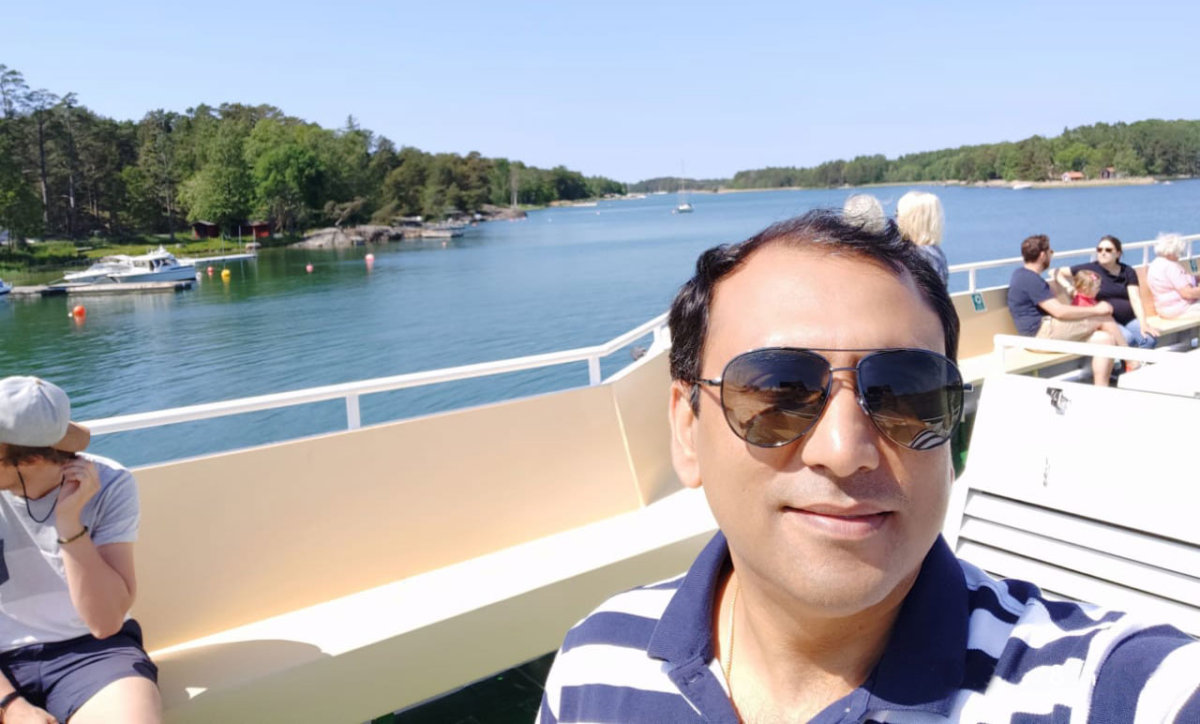
My story begins on April 11, when my wife caught a cold, which was followed by a fever. The next day, I also had fever, so my family and I decided to get tested. We suspected that it was Covid, simply because we were surrounded by it – many people in our residency had been infected by the virus. After three days, the results came, and we learnt that we were indeed Covid-positive.
At the time, we were only watching our oxygen levels and taking prescribed medicines, as that was what we had been told to do. Since the entire family was sick, it was a challenge to figure out who would manage the house (along with food, medication, and measuring temperature and oxygen) because everyone was so tired and slept through the day; the virus breaks your body quite a bit – you have a lot of pain amongst other symptoms. Some people in our society had volunteered to send food, which was a big help.

Getting medication was almost impossible – it was a very long process. You would consult with the doctor; two days later, you’d experience different symptoms, and you would try to consult them again. But then they wouldn’t be available for the three days, and now you need to find a new doctor. Then, once you would have the name of the prescribed medications, ordering them was becoming a big challenge – shops were running out of them.
Managing medication was also tough - even once we’d had them, there would be confusion regarding who was taking what – we were five at home, and everyone had to take 10 different medications. I had to make a complete chart of who was taking what, and when someone’s symptoms would change, we’d have to repeat the process. It was a hassle.
Pretty soon, I figured out that I wasn’t fine – one day I even started to have trouble breathing, and my oxygen levels would sometimes drop to 92. I also had very high fever - it went up to 102-3, even though I took paracetamol every three hours or so. So, I decided to try and get hospitalized.
Luckily, I was able to arrange a concentrator that night. Twelve hours later, I also managed a bed at a medium-sized hospital in Faridabad we had some acquaintance with. With two beds and a bathroom, the room I got was small, and there wasn’t enough space to move around; I would get out of bed, and two steps later I’d be in front of the wall. That didn’t bother me because I didn’t want to move around – it would make me feel tired and could cause me to cough. Not only did it hurt the body, it would also deplete my oxygen. It would only last for around a minute or so, but I’d be running out of breath for at least 10 minutes.
Given that the Covid patients were more than there were hospital staff, the workers were overloaded, which led to a large latency. This affected my medication, because the nurse wouldn’t be there at the right time to administer it. So, on the third day, I called the nurse and asked her to tell me what the doctor had prescribed, and at what time I was supposed to take it. Then onwards, I took care of my medicines – I didn’t want to risk the alternative.
I did feel a bit lonely in isolation, but it didn’t matter to me for the first few days – I was focused on was getting better. It did help that a second person was with me. We would have a small chat occasionally; she would also call her family, so I’d get to see them too. This gave me a sense of companionship. We also had a television, so initially I did try to watch the news, but two days later I decided against it because there was nothing positive there. We knew what the sports channel was, so we’d just put that on, watch it, get bored, and sleep.

Once you come back home, a lot of the recovery depends on you. You need to push yourself a little bit and do pranayama to increase your lung capacity and your stamina. At the time, I felt a lot of lethargy, which is something I’ve heard about from other patients too. I would get up in the morning and think of walking a kilometre inside the house; fifteen minutes later, I would still be sitting. I don’t know what it was – a lack of physical energy, mental energy, or a combination of the two.
I didn’t attend office for the first 10-12 days following my return from the hospital. But, when I was bored, I would just open my mail and go through it. I wouldn’t interact or reply to the emails, but I knew what was going on. So, I was about 70-80 per cent caught up. Once I did join, I didn’t want to push it beyond 5-6 pm, because the doctors had told me to rest. So, I had set an expectation right away that I would work; however, everyone would have to work the way they had when I was not there, and I would slowly pick up things. Everyone was quite understanding, and within 10-12 days I was in a place where I could take over.
To someone who’s just been infected – be extremely cautious, just so that you can plan for anything. Take it very seriously, even if you have very low fever (especially if you have parents at home). If you see your oxygen levels wavering, you cannot be sure if it’ll go down, or the rate of that, so as soon as you have any doubt, I think you need to figure out how to take precautions.
To someone who is already at the hospital and is going through a tough time – I think the most important thing is to try and be positive, and to not panic and think too much about the virus. Have faith in the doctor and the hospital, believe in what is going on, and think about how you are going to get better. You need to think about the key things you’re looking forward to once you get home. You need to think about the things you can hold on to, things that give you strength.
I did have a few moments in the hospital where I was not sure what the next morning was going to be, or even the next moment, which is something I’m sure every patient has felt. On my first day, they did not give me oxygen – I was afraid of sleeping and running out of breath in the night. You don’t face this often, and it really made me think a little more about where I am now. There were a few realisations around what I wanted to do that was not done, whether on the personal, official, financial, or social front. My life is still an open book with every path varying and without closure. It made me aware of what I should be doing, and I’m trying to act on that now. The worry is that once I’m healthy, I’ll get onto the same train again, so I try to stop myself at the end of every day and think about it. I was just running, but I need to stop, plan, and run again.
At the end of the day, once you get better, irrespective of what your goals are, please make sure you start supporting other families and people who are going through Covid. I’ve tried to do it and am actively trying to do more.
(As told to Navya Khurana)
Praveen Arora is Head of Global Consulting at Ericsson
Did you experience the loneliness of isolation? What were your coping mechanisms and your takeaways during your period of isolation? Write in to share your story in 900 words and sent to us at: covidtales19@gmail.com